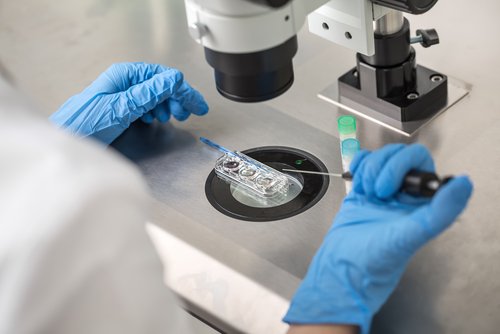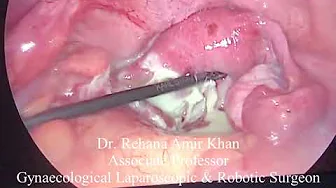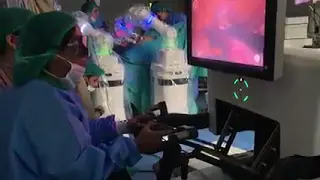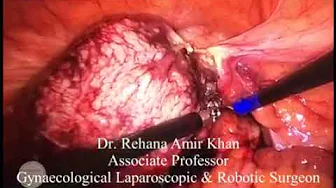PGD Services
PGD SERVICES
All Of Your Worries Will Vanish Away With Our Advanced Assisted Reproductive Techniques (ART)

We are experts in
Schedule your appointment today with best Gynecologist in Lahore; for a detailed checkup
PGD SERVICES
PGD; Stops Transferring Genetic Disease & Determine the Sex Of Your Newborn
Preimplantation genetic diagnosis (PGD) can help couples balance their families and reduce their children's risk of passing genetic diseases. Couples with at least one child of the same sex in the family are usually interested in having another child of the opposite sex. Our state-of-the-art reproductive laboratory uses a combination of intracytoplasmic sperm injection (ICSI) and preimplantation genetic diagnosis (PGD) techniques, allowing us to determine the sex of the fetus. The combination of ICSI and PGD is the most accurate method for determining whether the fetus is a boy or a girl, with 99% accuracy.
How does PGD help achieve family balance?
FISH technology is a well-established and recognized practice in fertility centers around the world, allowing scientists to determine the composition of an embryo based on x and y chromosomes before implantation.
The FISH (fluorescence in situ hybridization) technique is used during PGD to determine the sex of the fetus. For sex selection, in the FISH technique, two specific DNA "probes" are used. Each probe identifies the X and Y chromosomes, and molecules attached to the inquiries emit light of different colors that embryologists can use to determine the sex of the fetus.
How accurate is the PGD test?
In general, FISH procedures are 99% accurate in determining sex at the embryonic level on day three. However, there is a 1% chance of sex selection failure. In rare cases, embryos of all the same sex can be found.
However, in most individuals with genetic abnormalities, PGD testing is about 98 percent accurate.
Is PGD helpful in identifying any genetic condition?
Preimplantation genetic diagnosis is used to identify congenital disabilities in embryos produced by intracytoplasmic sperm injection (ICSI)/in vitro fertilization (IVF) before conception. Preimplantation genetic diagnosis (PGD) is useful when one or both parents have some known genetic abnormalities. The fetus is biopsied to determine if it carries any genetic abnormalities. In contrast to PGD, preimplantation genetic screening (PGS) is a technique that screens embryos for any possible aneuploidy.
Are PGD tests always successful?
In IVF clinics, each couple is informed of the success rate after being assessed by a fertility specialist, and prospective parents should remember that PGD/IVF results are not always successful.
PGD is performed in conjunction with intracytoplasmic sperm injection (ICSI), so it is difficult to assess the outcome of PGD, and the success rate depends on many factors, such as;
All fetuses can have genetic defects and other hidden fertility problems.
Sometimes, the desired sex is not found, and the embryo cannot be transferred.
How does PGD Works?
Initial Assessment and Consultation
PGD is recommended once the couple has demonstrated their desire for a balanced family or an infertility specialist has assessed their risk of having a child with an inherited genetic disorder.
Stimulate the ovaries
After thoroughly evaluating the prerequisites, ovarian stimulation begins on the second or third day of the menstrual cycle. Injections to stimulate the ovaries and some oral medications are given at certain times of the day.
Inject at the right time
Once estradiol levels and follicle counts have reached desired levels, a final trigger injection is given at night, approximately 36 hours before vaginal egg retrieval (TVOPU). Provide the patient with detailed instructions on the day of the vaginal egg retrieval.
Egg retrieval/egg collection
This is a day surgery where the patient is lightly sedated, and the eggs are removed from the ovaries through a tubal needle and passed through the vagina under ultrasound guidance. Any discomfort you may feel after TVOPU surgery is normal to moderate and can be effectively managed with pain medication injections.
Fertilize the Eggs
The next step is to fertilize the eggs in a dedicated IVF laboratory. Fertilization is accomplished using advanced intracytoplasmic sperm injection (ICSI) technology. During ICSI, embryologists inject one sperm into each egg using a special IVF-grade glass needle under a high-powered microscope. ICSI improves the chances of fertilization, especially if the sperm count or sperm cell motility in the semen sample is low.
Embryo biopsy and PGD testing
An embryologist will check how many eggs have been successfully fertilized the day after the eggs are collected. Note that some of your eggs may not be fertilized, and 100% fertilization rates may not always be achieved. Embryos are biopsied at this point to remove one or two cells from each embryo to determine sex and any genetic disorders.
The biopsy sample itself can identify chromosomal abnormalities with PGS genetic diagnosis.
Embryo Transfer
After a successful PGD test, the patient is informed of the sex status of the fetus and any abnormalities detected. With the spouse's consent, the embryos of the desired sex are then transferred to the IVF room. Provide patients with full instructions on medication use and precautions.
Pregnancy test
Fifteen days after the embryo transfer was successful, the patient was given a pregnancy test. If the test is positive, the transplant has been successfully completed. The next step is to understand the fetal heart rate through television.
PGD SERVICES
Who should consider PGD?
Couples who dream of a balanced family should consider the preimplantation genetic diagnosis. PGDallows parents to choose the sex of their newborn before embryo transfer and implantation.
Preimplantation genetic diagnosis (PGD) can be considered in all IVF cycles, especially for couples at higher risk of having a baby with a chromosomal abnormality or any specific genetic disorder. PGDcan identify embryos that contain an abnormal amount of chromosomal material.
Preimplantation genetic diagnosis should consider:
PGD SERVICES
Risks involved with PGD
Most of the risks associated with PGD treatment are similar to intracytoplasmic sperm injection (ICSI)/in vitro fertilization (IVF):
Do not worry about anything; you are in good hands. We are the expert Gynecologist in Lahore and have treated thousands of couples with infertility issues. We assure you we treat you the best with all our ability to make your life happy.




